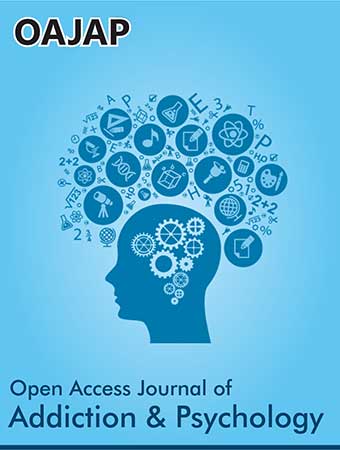 Research Article
Research Article
Alcoholism, Gender, And Mental Illness
Thomas J Bechard* and Peggy Howell Beall**
Public Health & Social Work, Slippery Rock University, USA
Thomas J Bechard, Professor in the Social Work department,
119 Dinger Building, PA, USA.
Peggy Howell Beall, Assistant Professor, Public Health & Social Work, 111 Dinger
Building, PA, USA.
Received Date: February 11, 2019; Published Date: March 19, 2019
Abstract
The goal of this study was to examine gender differences in people with an alcohol use disorder with focus on the cognitive dimension. Social learning theory postulates that the “emotional disturbance” associated with an alcohol use disorder is related to “irrational” thinking [1]. The rational-irrational dimension of cognition was chosen to test for gender differences. This is an ex post facto study, comparing treated men and women with an alcohol use disorder on irrationality and intelligence. An analysis of variance with regression was performed to determine gender-modality effects and gender-modality interaction. It was hypothesized that females would score significantly higher than males on a cognitive functioning scale measuring rationality/irrationality. Results revealed a significant modality effect (P <.01), but neither a significant gender effect (.05 level), nor a significant gender treatment modality interaction effect (.05 level).
There was a relationship between modality and irrationality, but not between gender and irrationality. Irrationality scores were significantly higher (P <.0001) in inpatient modalities than in outpatient modalities. There were no significant differences between gender on the lie or the vocabulary scales. There was a significant inverse relationship between intelligence and irrationality for both genders. The relationship between gender, alcoholism and irrationality in this study is equivocal; i.e., one test showed it, the other did not.
-
Thomas J Bechard, Peggy Howell Beall. Alcoholism, Gender, And Mental Illness. Open Access J Addict & Psychol. 1(5): 2019. OAJAP. MS.ID.000523.





